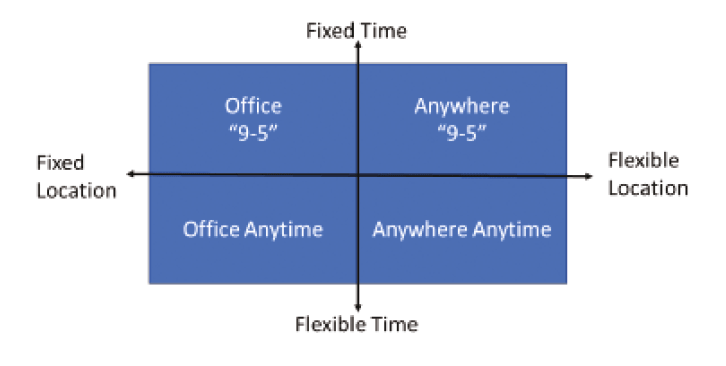QBE International chief human resources officer Emma Higgins outlines eight things that matter when considering a hybrid working strategy. (Sponsored content.)

The pandemic has been a gamechanger for alternative ways of working. Employees across the globe have shown the ‘impossible’ was doable and expectations for hybrid working to stay are high. But what do companies need to consider?
Hybrid working is essentially making characteristics that define the workplace more flexible. Two of the more important characteristics to understand are where and when a job is done – an important first step in defining your approach.
Hybrid working arrangements are often combinations of these approaches with degrees of flexibility depending on the job and situation - from fully remote to fully onsite and in between. Equally, work times can range from fixed to fully flexible.

There’s no “one size fits all” model and what works for one company may not work for another. It’s a balancing act to align the needs of the job and the needs of employees, while managing risk.

EIGHT THINGS THAT MATTER
1. Productivity
There have been broad observations of an increase in productivity when working remotely, though by no means uniform across different types of work, nor do many believe that it’s sustainable. Consideration of productivity drivers is needed.
2. Collaboration
A lack of “in person” collaboration can hinder innovation. While there’s something inspiring about batting ideas about in the same room, lockdown has introduced online tools for collaboration and brainstorming. Having a structured approach combining remote with in-person will probably yield better results.
3. Culture
The importance of culture in business success cannot be underestimated. With the workplace so important to defining that culture, leaders will need to work hard to build that sense of inclusion.
4. People
Hybrid working is expected to be a key tool in the war for talent post-pandemic. Organisations must have processes in place to develop and support career progression.
5. Fairness
Putting fairness and inclusion front and centre will be key to ensuring a successful hybrid working approach – treating remote employees the same as those in person.
6. Managers
Hybrid working will make it more challenging for managers - needing to keep more balls in the air – and needing the training, tools, and time needed to make this shift.
7. Duty of care
Ensuring the same health and safety requirements responsibilities if employees are in the office or working from home.
8. Legal and tax implications
If a work from anywhere policy is adopted tax residency requirements and employee law implications will need to be carefully considered.
Whether you’re starting your hybrid working strategy or reviewing its implementation, you’ll find more information to help you in the full article here.
Click here for the full article
Emma Higgins, Chief Human Resources Officer, QBE International
QBE Europe, London, EC3M 3BD
020 7105 4000































No comments yet